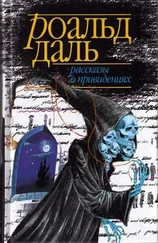Before they left the shelter of the Forest, Lena caught Griselda by the arm. ‘Look! That’s a thing to see from the top of a tree.’
In the sunshine before the porte-cochиre, a strange figure sat upon the stones of the drive working. It appeared to be a dwarf. It had very long arms (like a cuttlefish, Griselda thought), very long black hair (somewhat like horsehair), and a completely yellow face. Its ears were pointed, with strands of stiff black hair rising from the top of them. It wore black clothes. Very industriously, despite the great heat, the figure was polishing a large black piece of wood.
‘You were right,’ said Griselda, speaking unnecessarily softly; ‘that’s a hatchment.’
‘Would that be the undertaker?’
‘No. Undertakers must have charm.’
‘Dare we go past?’
‘I think so. Unless you’d prefer to go back.’
‘Aren’t we trespassing?’
‘This is the twentieth century.’
‘Should we take advantage of that?’
‘I’ll apologize and ask the quickest way out.’
They advanced from the safety of the trees. Instantly, against the ponderous grandeur of the house, they felt themselves misplaced and insignificant, wrongly dressed and intrusive.
The dwarf went on polishing until they were almost upon him, whereupon, without haste or appearance of surprise, he rose, bowed ceremonially, and extended his long left arm rewards the door of the house.
‘I’m afraid we’ve lost our way,’ said Griselda. ‘Will it be all right if we go on down the drive?’
The dwarf who had completely black eyes, bowed again, and continued to point to the front door.
‘Let’s see for ourselves,’ said Lena after a second’s silence. She tried to pass the dwarf on the other side, with a view to making for the drive.
The dwarf, still with his arm extended, stepped to the right and barred her way. Now by gestures with the right arm he seemed to reinforce the invitation already made with the left. Griselda saw that the big double front door wood wide open.
‘Shall we go back?’ said Lena.
The dwarf took a further step. He now stood facing the door and with the lawn behind him. Both his immense arms were fully extended, so that he looked like a queer tree. The hatchment lay face downward on the stones.
‘What is there inside?’ asked Griselda.
The dwarf bowed once more, this time stretching back his arms and upturning his hands. His hands were unusually large and white; and wiry black hair grew in the palms.
‘Let’s go,’ said Lena.
She looked about to run for it, but the dwarf, his arms still extended, leapt right off the ground like a goalkeeper, and descended in her course.
Griselda, anxious to prevent an unpleasant and undignified dodging contest, which, moreover, she feared the dwarf would, in at least one case, win, said ‘I think we’d better investigate. They may need help.’ Most of the blinds in the house were drawn.
‘If you say so.’
They entered the house, the dwarf one pace behind them.
When they were through the front door, he returned to his polishing in the sun.
The drawn blinds made the hall very dark, despite the strong light outside. At once, however, the two girls saw that a figure stood motionless at the bottom of the stairs which rose before them. It was an elderly woman, very tall, very upright, very grey, and wearing a grey dress reaching to the ground.
‘So you’ve come. This way.’
She began to lead the way upstairs, then stopped.
‘Only one of you.’ She peered at them. ‘You.’ She indicated Griselda. ‘You,’ she said to Lena, ‘can go – or wait. Just as you choose. It won’t take more than five or ten minutes now.’
‘There’s some mistake,’ said Griselda. ‘We—’
‘Hardly,’ interrupted the woman, smiling a slight, hard, weary smile through the gloom. ‘But you won’t have to stay long. Your friend can wait if she chooses. Come upstairs, please.’
‘Why me?’
‘I’m not sure your friend would serve. Please sit down,’ she said to Lena. ‘And wait.’
‘Why won’t I serve?’ enquired Lena.
‘There is a condition which must be complied with. You’ll be perfectly safe,’ she added somewhat contemptuously, ‘Both of you. Now,’ she said to Griselda, ‘follow me.’
Griselda followed her up the wide staircase and into a gallery on the first floor, which seemed to run the length of the house and was filled with tapestries, there being apparently no other furniture of any kind except a carpet, though it was difficult to be sure in the dim light. Beyond the gallery were several large dark rooms filled with dust-sheets. Then there was a high double door.
The woman opened one of the doors very softly, disclosing artificial light within; and with an authoritative gesture from the wrist, indicated that Griselda should pass by and enter. The light in the room within enabled Griselda for the first time clearly to see her face. She looked imperious but sad; like one leading a dedicated life.
The room Griselda now entered was hung with black, which kept out all daylight. It was illumined by several hundred candles assembled on a frame such as Griselda had seen set before images in Catholic cathedrals; but larger, and formed of fantastically twisting golden limbs. The light fell upon a single enormous picture standing out against the black hangings: in an elaborate rococo frame, it depicted an Emperor or conqueror at his hour of triumph, borne by a white horse up a hill into a city, apotheosed alike by the paeans of his followers weighed down with loot, and by the plaints of the mangled, dying, and dispossessed. Opposite the picture was an immense four-poster bed, hung like a catafalque with black velvet curtains which descended from a golden mailed fist mounted in the centre of the canopy high up under the extravagantly painted ceiling. The carpet was of deep black silk. In the air was faint music.
The writhing candelabrum stood near one of the posts at the foot of the bed. While leaving all but the bed and the picture shadowy, it lighted up the room’s occupant. Griselda at once recognized him. That look of a censorious Buddha, those clear yellow eyes, were, indeed, not to be forgotten. The man in the bed was Sir Travis Raunds. He looked older than ever, and horribly ill, but he was turning the pages of a black folio volume containing coats of arms exquisitely illuminated on vellum.
As Griselda entered, the sick man looked up from his escutcheons.
‘Ah, my dear,’ he said in a high musical voice, ‘in a world as near its end almost as I am, you at least do not fall short. You are as lovely as any of the dear women who performed your office for my ancestors. Kneel: there, where there is light.’ He pointed to a patch of carpet, and Griselda knelt before his bed in the candlelight. Though the black curtains kept out the sun, the candles made the room very hot.
‘Thank you. Now give me your hand.’ He made a slight, weak gesture. ‘You are perfectly safe. It will only be for a minute. Though time was—’ But his remarks were tiring him, and he broke off with a Buddha-like smile.
Griselda extended her left hand. He took it in long thin white fingers, like those of a high-born skeleton, and lightly drew her towards him. She found that a stool stood beside the bed and seated herself upon it.
‘How are you, Sir Travis?’ she asked gently.
‘Listen, my dear. Listen to your answer.’
Griselda listened. The music was as of a very large orchestra very far off: too far off for any particular melody or instruments to be recognized.
‘What is it?’
The dying man seemed to hear more than she did. ‘“’Tis the god Hercules, whom Antony loved, now leaves him.”’ He was listening intently.
Читать дальше




![Роберт Эйкман - Холодная рука в моей руке [сборник litres]](/books/438747/robert-ejkman-holodnaya-ruka-v-moej-ruke-sbornik-l-thumb.webp)





